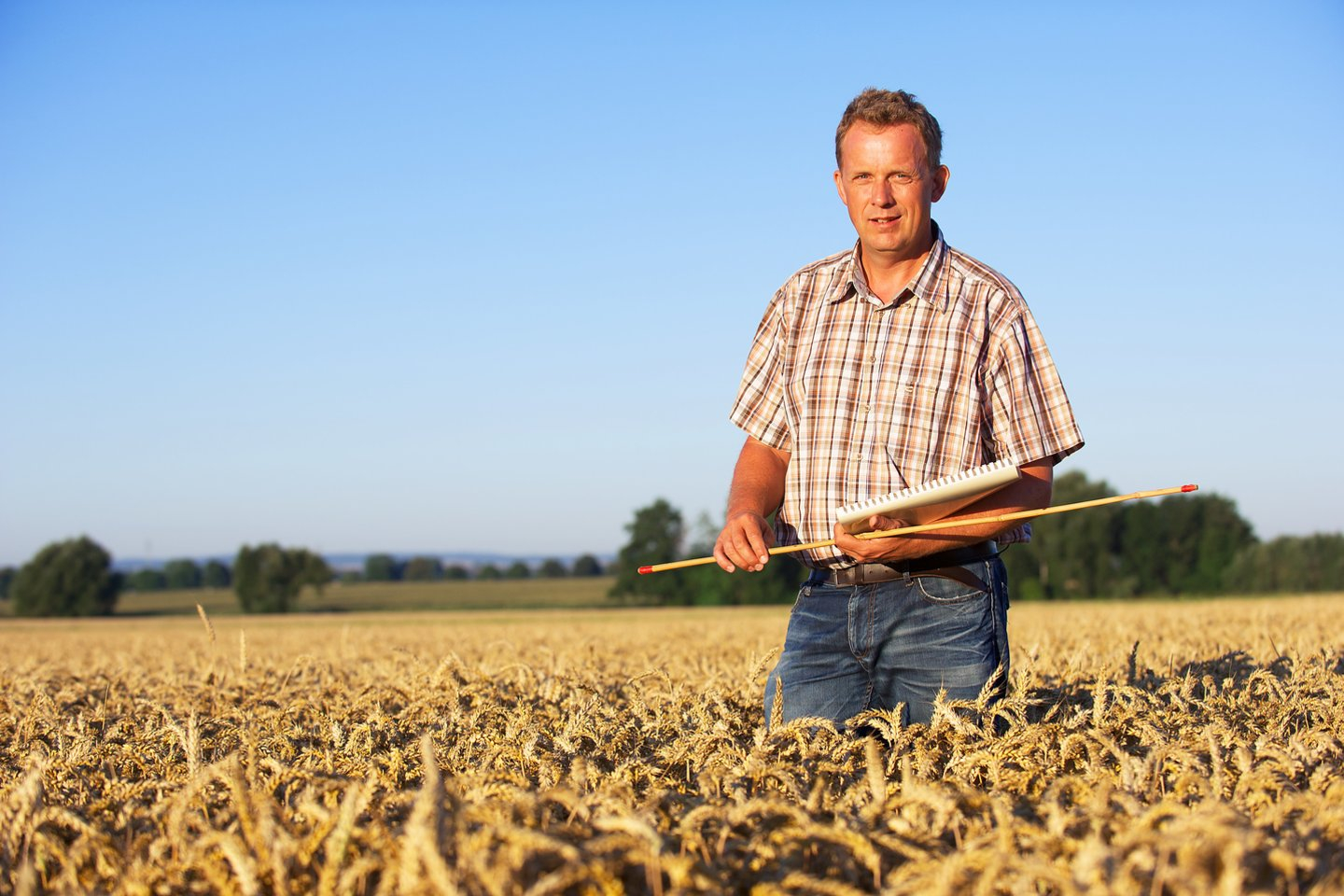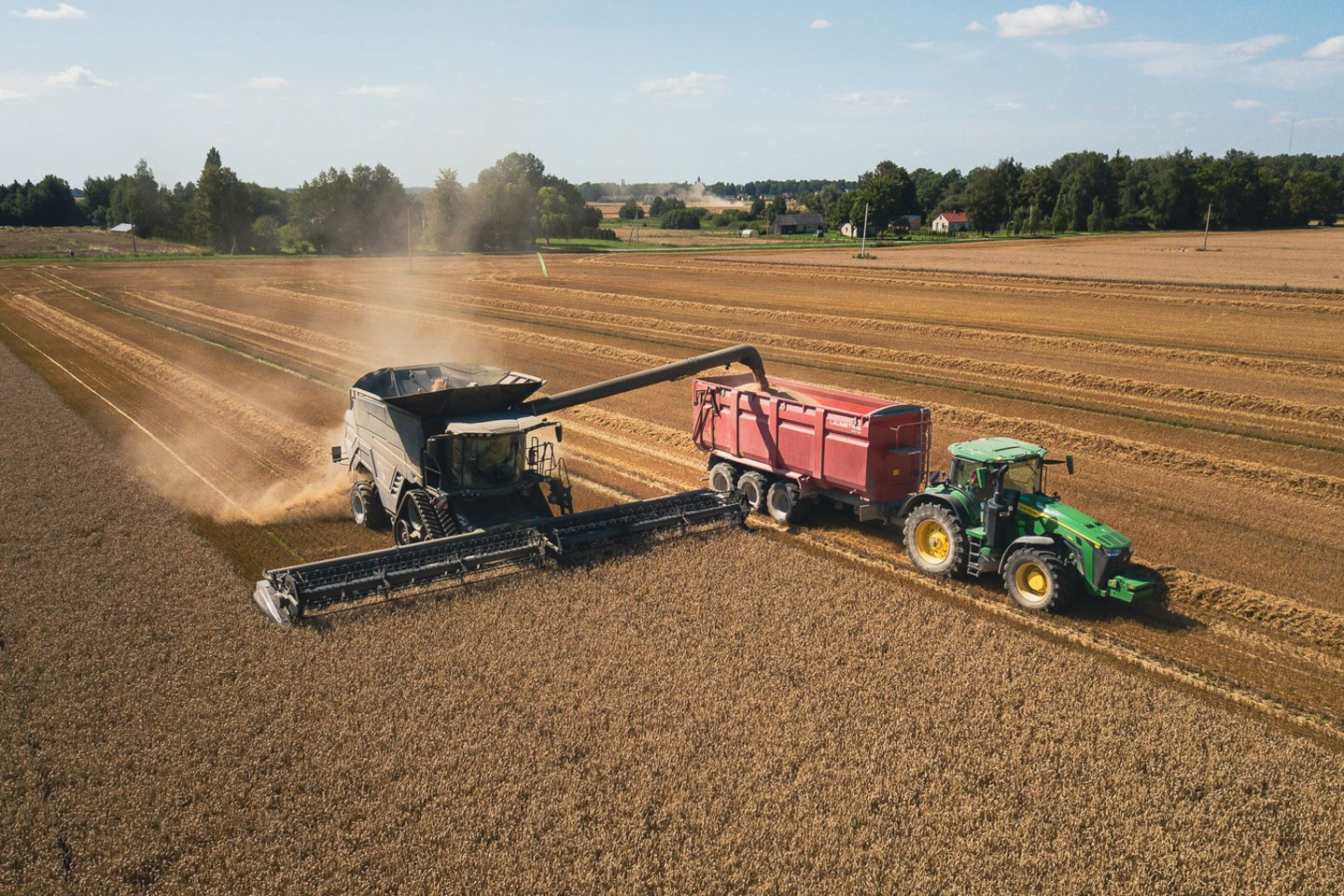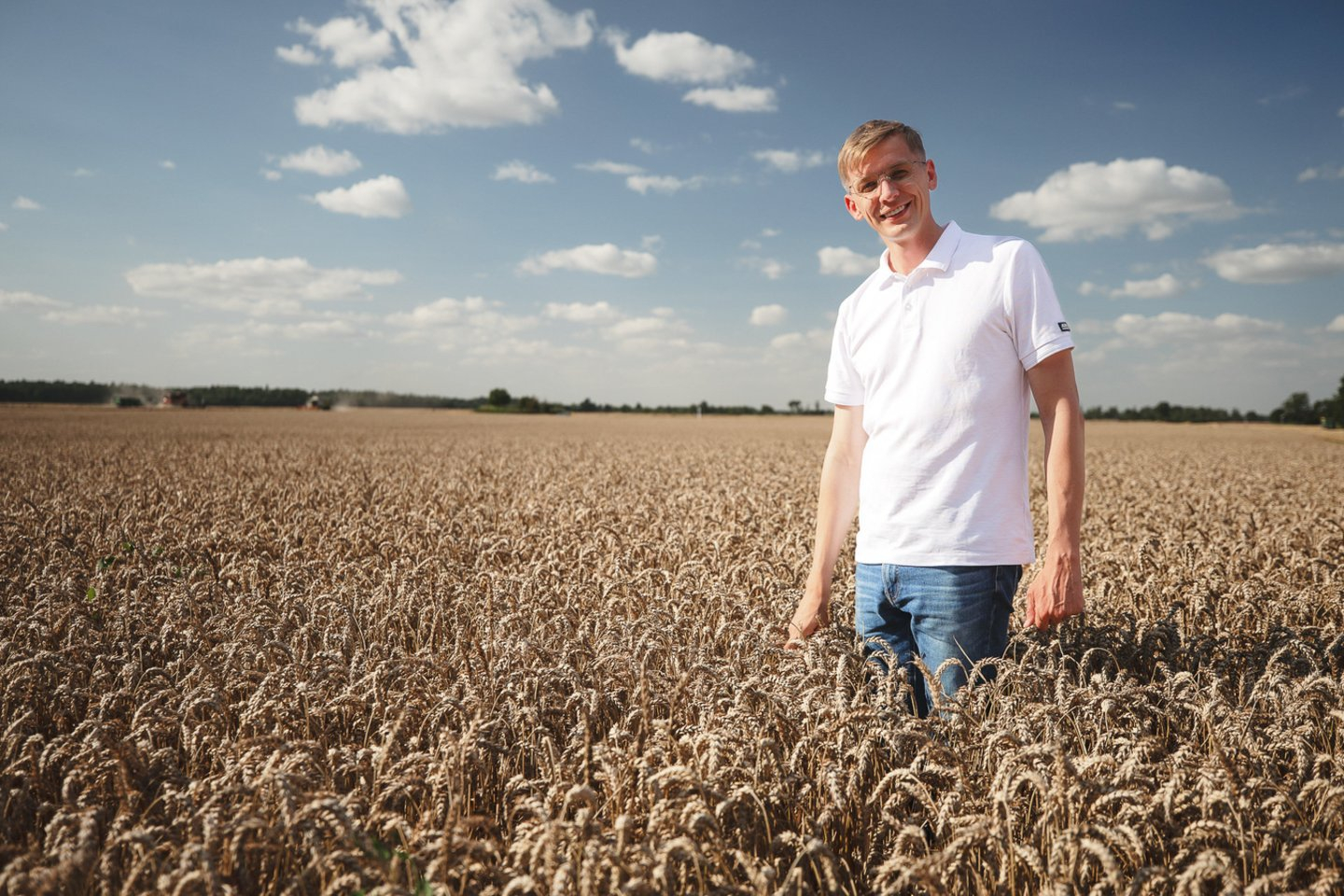The Official Lithuanian Record: 9.5 tonnes of Winter Wheat per Hectare with 'LG Keramik'
9.5 tonnes of 'LG Keramik' winter wheat per hectare – this is the official Lithuanian record registered this year. This result was also noted in Germany, where Dr. Johannes Schacht, the breeder of the 'LG Keramik' variety, works. For him, this achievement was not only a pleasant surprise but also a confirmation that he and his team are on the right track.
From the Record Field to German Laboratories
Dr. J. Schacht leads the winter wheat breeding program for "Limagrain" in Rosental. He admits that the news from Lithuania was very encouraging. According to him, it proves that new genetics varieties, such as 'LG Keramik', can maintain high yields even in more challenging climatic conditions. The strength of this variety lies precisely in its ability to adapt. "It is resistant to winter, tolerates spring fluctuations, and has excellent grain quality. Results like those in Pakruojis show that Lithuania has excellent potential to combine modern genetics with precision agronomy," he says. It is this combination – well-prepared soil, balanced fertilization, a carefully selected protection plan, and the variety's genetics – that becomes the foundation of modern farming.
A Variety Created for the Era of Climate Challenges
According to Dr. J. Schacht, 'LG Keramik' was developed considering the growing impact of climate change on agriculture. "We wanted to create a medium-early variety that would stand out for its frost resistance, strong straw structure, and a reliable disease resistance package." According to the breeder, the secret to the variety's success is its stress tolerance and stable yield even under unstable weather conditions. "In Lithuania, 'LG Keramik' proved its worth because the variety's profile ideally matches your climatic and agronomic context. This is a variety created for a real farm – not a laboratory," he notes. This variety is grown not only in Lithuania but also in Belgium, Poland, the Czech Republic, Slovakia, Ukraine, and Moldova, and its versatility demonstrates a very wide adaptation to different soils and climate conditions.
The Breeder's Journey: From Intern to World-Class Creator
"Breeding varieties is a job of patience and vision," emphasizes Dr. J. Schacht, who has been working for the "Limagrain" group for over two decades. He started with agricultural apprenticeships on farms, later studied agronomy, and dedicated his doctorate to plant breeding. Since 2001, he has been leading the winter wheat breeding program. "The creation of a new variety takes eight to ten years. Per that time, you have to anticipate what challenges farmers will face a decade later. Today, we focus heavily on nitrogen use efficiency and disease resistance – this is the key to sustainable yields," the speaker stresses. According to the breeder, future directions include innovation and genetic diversity. "We are working with ancient wheat species to discover traits that can help plants adapt to new climatic conditions. We want wheat to be more resistant to insects and viruses, whose control options will decrease."
A Record Born from an Idea and Consistent Work
Sometimes new standards are born not in conferences or laboratories, but where the earth meets human persistence. That is exactly how the officially confirmed Lithuanian agriculture record was born this autumn in Pakruojis – 9.5 tonnes from one hectare with the 'LG Keramik' variety. The official record was registered by representatives of the "Academy of Records," and its initiator was Arnas Radzevičius, the commercial director of "Agrokoncernas." He recounts that the idea was born after the "Field Days" event held in Pasvalys in the spring. "I saw that the yield potential in one farm was extremely high. This is how the idea arose to take the initiative and register the country's first winter wheat yield record. There is so much talent in the sector: excellent farms, agronomists, knowledge, varieties, and agronomic solutions, so I think we need a measure, a reference point from which to start and continue striving for better results by exploiting the sector's potential, which is very large," says the specialist. Two fields belonging to companies of the "Agrokoncernas" group were chosen for the record registration – "Žvirbloniai" and "Draugas." Ultimately, it was confirmed in the fields of "Žvirblonių" Agricultural Company, where 9.5 tonnes were harvested per hectare. According to Radzevičius, this achievement is not just a random flash of success but the result of consistent work, collaboration with science, and advanced technologies.
Lithuanian Farms – A Proving Ground for Innovation
Dr. J. Schacht emphasizes that examples like this record show the progress and openness of Lithuanian farmers to innovations. "For me, as a breeder, this is an encouraging result and proof that our goal of being closer to the farmer is working. Projects implemented by 'Agrokoncernas' help the farms themselves become more sustainable and competitive," says the scientist. According to the scientist, Lithuanian farmers have a special trait – they are not afraid to experiment and quickly adopt new technologies. "This is a country where innovations are embraced with enthusiasm. When I see such results, I understand that the future of agriculture here is very much alive." He adds that the potential of 'LG Keramik' is even greater, with the possibility of achieving more than 13 tonnes per hectare under ideal conditions. "But that requires a precise combination of fertilizers, crop protection products, and technologies. In other words, the entire system is needed," he explains.
Teamwork and a Look to the Future
According to the breeder, a successful harvest is determined not only by the seed but also by the farmers' ability to heed recommendations and consistently apply the entire cultivation technology. The "Agrokoncernas" team of agronomists also played an important role here, helping to create a balanced technological solution – from soil testing to harvesting. A. Radzevičius agrees. "A good harvest is not luck but a process. It is important to consistently manage all stages – from soil testing to properly adjusted equipment. Then records become a natural consequence of the work." This approach, according to him, is increasingly taking root among Lithuanian farmers. Modern technologies, knowledge-based solutions, and cooperation with scientific representatives are becoming the new standard. The "Limagrain" team led by Dr. J. Schacht is currently working on new generation varieties that will be even more resistant to climate change, soil stress, and changing moisture balance. "Our goal is to create varieties that allow farmers to achieve more with less," summarizes the German scientist. Results like this record are not possible for everyone to achieve. It is proof that when "Agrokoncernas," science, and farmers work together, agriculture becomes not only a business but also a continuous path of improvement.





 Login
Login

